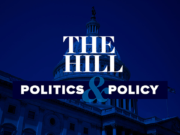Judge Gorsuch has written or joined opinions in two notable First Amendment cases while on the Tenth Circuit: Riddle v. Hickenlooper (2014), and Doe v. Shurtleff (2010).
The Riddle decision supported free speech rights under the Fourteenth Amendment’s equal protection clause. Conversely, in Doe, the Appeals Court rejected a First Amendment challenge but did so only after narrowing a law that required convicted sex offenders to take certain steps intended to assist investigations of sex crimes and kidnapping.
Riddle v. Hickenlooper
In Riddle, appellants challenged Colorado’s unequal contribution limit scheme for state House of Representatives candidates. State law allowed Republicans and Democrat candidates to raise $400 of total contributions, split between a primary and general election. But these major-party hopefuls could allocate the funds solely for the general if they chose.
Unaffiliated, write-in candidates, and minor-party candidates had different rules. Unlike major-party candidates, the state did not require primaries for these candidates, and it set their overall contribution limit at $200.
The circuit court panel found this scheme unconstitutional on Fourteenth Amendment equal protection grounds. It declined to address First Amendment claims brought by the same party.
The panel reasoned that the state’s interest in preventing corruption or its appearance was unconnected to the manner in which Colorado structured these contribution limits. And, as it touched on the fundamental right to contribute as a form of political expression, the law could not withstand intermediate or strict scrutiny:
In the First Amendment context, the Supreme Court has applied a less rigorous test for contribution limits, examining whether they are closely drawn to a sufficiently important governmental interest. For the sake of argument, we can assume that this form of intermediate scrutiny applies when contributors challenge contribution limits based on the Fourteenth Amendment’s Equal Protection Clause rather than the First Amendment.
The statute creates a basic favoritism between candidates vying for the same office. [Appellant Kathleen Curry’s] campaign provides a vivid example. Ms. Curry, as a write-in, had no opponent until she earned a place on the general-election ballot. The same was true of the Republican and Democratic nominees, for they were unopposed in their primaries.
Unlike Ms. Curry, however, the Republican and Democratic candidates could collect $400 after earning a place on the general-election ballot. In contrast, Ms. Curry could collect only $200.
This classification does what the Supreme Court has never countenanced: It creates different contribution limits for individuals running against one another. These discriminatory limits are not closely drawn to the State’s interest in battling corruption or the appearance of corruption. As a result, the classification does not survive strict scrutiny. [Internal citations omitted.]
Judge Gorsuch concurred, noting the legal uncertainty surrounding levels of scrutiny in this area:
I confess some uncertainty about the level of scrutiny the Supreme Court wishes us to apply to this contribution limit challenge, but I harbor no question about the outcome we must reach. […]
The minor party contributors who bring this equal protection challenge suggest (at least in places) that we should consider applying strict scrutiny to this particular aspect of Colorado’s statutory scheme. They say that contributing in elections implicates a fundamental liberty interest, that Colorado’s scheme favors the exercise of that fundamental liberty interest by some at the expense of others, and for this reason warrants the most searching level of judicial scrutiny. For my part, I don’t doubt this line of argument has much to recommend it. The trouble is, we have no controlling guidance on the question from the Supreme Court. And in what guidance we do have lie some conflicting cues.
No one before us disputes that the act of contributing to political campaigns implicates a “basic constitutional freedom,” one lying “at the foundation of a free society” and enjoying a significant relationship to the right to speak and associate – both expressly protected First Amendment activities. Even so, the Court has yet to apply strict scrutiny to contribution limit challenges – employing instead something pretty close but not quite the same thing.
In the Fourteenth Amendment’s equal protection context, the Supreme Court has clearly told us to apply strict scrutiny not only to governmental classifications resting on certain inherently suspect grounds (paradigmatically, race) but also governmental “classifications affecting fundamental rights.” Still, some thoughtful judges have questioned whether it is appropriate to lift what is an admittedly “fundamental right” found in the First Amendment and analyze its infringement here, in the Fourteenth Amendment context, shorn of what the Court has said about the appropriate level of scrutiny applicable to that right in its native doctrinal environment.
Whatever level of scrutiny one might reasonably apply here – even spotting (without in any way granting) Colorado its wish that we lift Buckley’s somewhat more relaxed level of scrutiny from its First Amendment home and plunk it down into this Fourteenth Amendment equal protection setting – the State’s statutory scheme still pretty clearly flunks. [Internal citations omitted.]
Judge Gorsuch also tackled the state’s justifications for the limits and found them deficient:
First, can a state really justify unequal treatment because of a “problem” of its own creation? After all, to the extent unchallenged major party candidates may incur more costs because they have to participate in primaries (an essential factual premise for which Colorado has identified no evidence in our record), that’s only because state statutory law requires them to do so. Second, what does the State’s proffered rationale have to do with the rule it seeks to defend? Even if we accept for argument’s sake the notion that major party candidates “need” more money to secure their parties’ nominations because of the primary election process, that speaks only to the primary election. Meanwhile, the challenge in this case focuses on the fact Colorado’s regulatory regime allows major party contributors greater influence in the general election.
When it really comes down to it, the only reason I can imagine for Colorado’s challenged regulatory scheme is a bald desire to help major party candidates at the expense of minor party candidates. Whether that rationale could save Colorado’s scheme seems to me highly doubtful […] . [T]he Court has never gone so far as to suggest the states may pursue that interest by discriminating against contributors based on their political allegiances. Neither has Colorado had the audacity to suggest that we should uphold its regime on this basis – and when deciding whether a law satisfies strict scrutiny or Buckley’s slightly less demanding standard, this court is obliged to assess the law only in light of the interests the State has sought to pursue, not those it hasn’t. [Internal citations omitted.]
Gorsuch also distinguished Colorado’s policy goals from the law’s discriminatory effect. He suggested that the state could tweak the law’s language to remedy the constitutional deficiency:
[W]ith a little effort, Colorado could have achieved its stated policy objectives (and might still) without offending the national charter […] .
Nothing in what I’ve suggested or what the court holds intimates that Colorado must adopt a per-election-cycle rather than a per-election approach to the regulation of campaign contributions. The State represents that its constitution requires some sort of statutory scheme regulating campaign contributions on a per-election basis (disaggregating primary and general election contributions and capping them separately) rather than on a per-cycle basis (aggregating the two steps in one overall contribution limit).
The fact that Colorado’s current statutory per-election scheme runs afoul of the federal equal protection guarantee doesn’t mean all will. The federal government regulates campaign contributions on a per-election basis and manages to do so without any of the discrimination found in Colorado statutory law. Perhaps the State might follow this model or some other. What we hold today is limited but no less essential for it: a state cannot adopt contribution limits that so clearly discriminate against minority voices in the political process without some “compelling” or “closely drawn” purpose – and Colorado has articulated none.
Doe v. Shurtleff
This case involved a convicted sex offenders’ First Amendment right of anonymity. The appellant, “John Doe,” argued that the state’s command that he register “internet identifiers” and the corresponding websites was unconstitutional.
Judge Gorsuch joined a panel that refuted this argument and upheld the statute (as amended and narrowed by the General Assembly and the court to limit disclosure to law enforcement, not the public, and only to assist in an investigation of a sex or kidnapping crime):
[A] state may permissibly infringe upon [the right to anonymity] when its interest is important enough and the law is appropriately tailored to meet the stated interest. In evaluating these interests, the Supreme Court has suggested a distinction between the mandatory disclosure in public of a speaker’s identity and the requirement that a speaker provide information to the government that could later be used to trace speech back to its source.
On its face, section 77-27-21.5 is a content-neutral regulation. The law says nothing about the ideas or opinions that Mr. Doe may or may not express, anonymously or otherwise. Neither is it aimed at “supress[ing] the expression of unpopular views,” but rather it is directed towards aiding the police in solving crimes.
As a content-neutral regulation, Utah’s reporting law is subject to intermediate scrutiny, meaning that the law will be upheld if “the Act (1) serves a substantial government interest and (2) is ‘narrowly drawn’ to serve that interest ‘without unnecessarily interfering with First Amendment freedoms.’”
We have no doubt that the State of Utah has a compelling interest in investigating kidnapping and sex-related crimes. Thus, our consideration of this statute focuses on whether it unnecessarily interferes with Mr. Doe’s First Amendment freedoms in serving this interest.
However, although [the law] may not contain the explicit privacy safeguards […] we are not persuaded that this subsection permits the unrestricted disclosure of information to the general public. […]
In light of this broader statutory context, as well as the limited law-enforcement purposes for which internet identifiers may be “shared” under this section, we conclude that section 77-27-21.5(2)(c)(i) is readily susceptible of a much narrower construction than advanced by Mr. Doe. We thus read this statute as permitting sharing only among law-enforcement agencies, not the public at large, and only for the recited law-enforcement purposes. […]
As for Mr. Doe’s arguments concerning the potential chilling effect of disclosure to state officials, we also hold that the statute includes sufficient restrictions so as not to unnecessarily chill Mr. Doe’s speech. Mr. Doe argues that the language of section 77-27-21.5(2) is broad enough to allow the state to monitor his communications at any time, which in turn may chill any anonymous criticisms of oppressive laws or state practices he might otherwise make via the internet. However, while this section, which allows the State to use an offender’s internet identifiers “to assist in investigating kidnapping and sex-related crimes, and in apprehending offenders,” § 77-27-21.5(2), can be read broadly, we conclude that it is also readily susceptible to a narrowing construction. […]
Although this narrow interpretation may still result in the disclosure of Mr. Doe’s online identifiers to state officials, such identification will not unnecessarily interfere with his First Amendment freedom to speak anonymously. First, we note that such a disclosure would generally occur, if at all, at some time period following Mr. Doe’s speech and not at the moment he wished to be heard. […] Although there is a possibility that a government agent would have access to Mr. Doe’s identity at the time he was speaking – as, for example, if an undercover sought him out in a chat room in the course of investigating a sex crime – we are not persuaded that this possibility imposes a constitutionally improper burden on speech.
As a final First Amendment consideration, Mr. Doe alleges that Utah’s statute is overbroad. Specifically, Mr. Doe argues that the law is unconstitutional because it allows the state to collect the internet identifiers of individuals who are required to register under the reporting statute because of their involvement with a kidnapping offense. […] However, the most recent enactment of the statute allows state officials to access online identifiers “to assist in investigating kidnapping and sex-related crimes,” (emphasis added), and we are not persuaded that individuals convicted of kidnapping offenses constitute “third parties whose speech is more likely to be protected by the First Amendment than the plaintiff’s speech.”
This post originally ran in The Insider Online on January 27th 2017.














